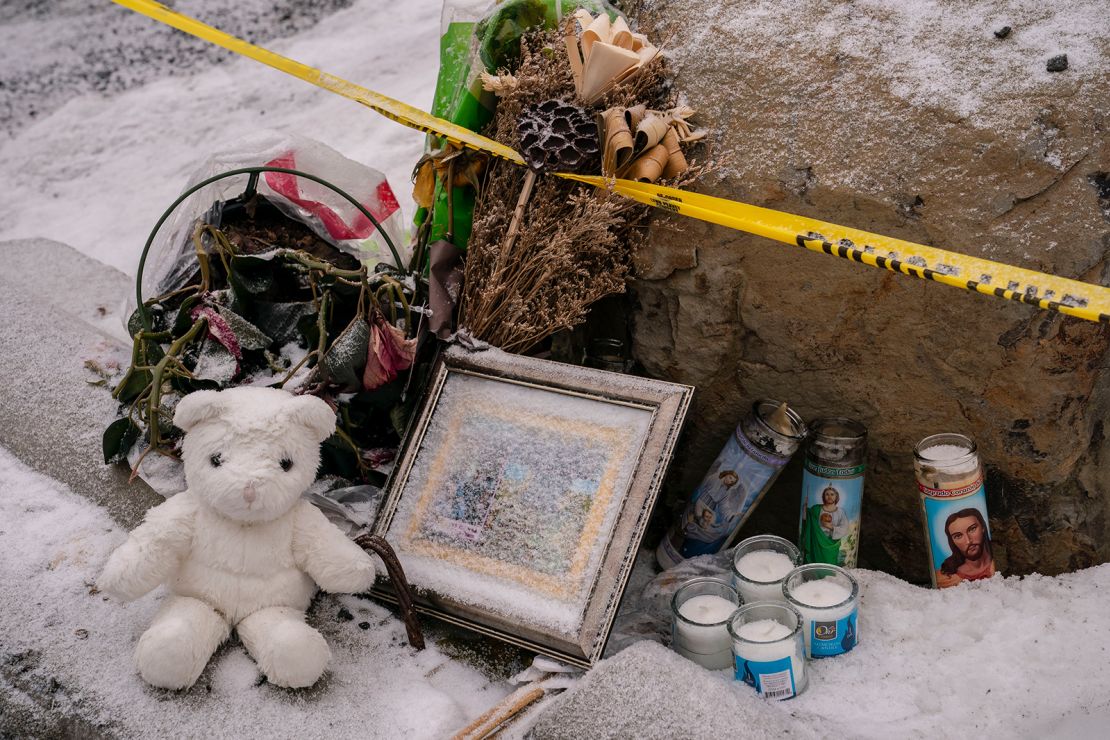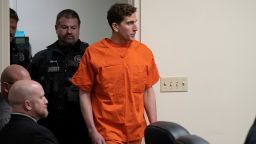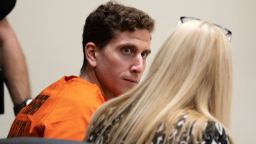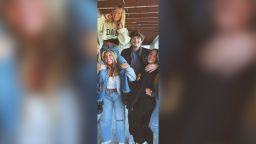Classes resume Wednesday at the University of Idaho, just weeks after many students abandoned the campus amid anxiety over the lack of an arrest in the gruesome stabbing deaths of four students in November.
The arrest of a suspect over winter break, however, has alleviated many students’ fears, allowing them to walk into classrooms Wednesday with more confidence in their safety. Still, the community’s long-held sense of security has been irrevocably shattered, some university members say.
“It definitely seems like a different place,” sophomore Shua Mulder said to CNN affiliate KXLY. “I’m hanging out with some more people. Definitely staying in groups.”
The university is still mourning the loss of the four students – Kaylee Goncalves, 21; Madison Mogen, 21; Xana Kernodle, 20; and Ethan Chapin, 20 – who were found stabbed to death in an off-campus home on November 13.
Nearly seven weeks passed without an arrest in the case, leaving the tight-knit campus wracked with unease and uncertainty. The university significantly heightened security measures and gave students the option to leave campus and complete the semester remotely.
So when Bryan Kohberger, 28, was arrested and named the sole suspect on December 30, students like sophomore Ryder Paslay were offered a little peace of mind.
Paslay was watching the news with his family when he learned of Kohberger’s arrest. “I breathed a sigh of relief and I’m pretty sure my mom did the same thing,” he told KXLY.

Though some security measures implemented after the killings will be scaled down this semester, campus security will remain heightened, the university’s provost and executive vice president Torrey Lawrence told CNN last week. While students still have the option to attend remotely, he said most have returned to campus.
Even so, he said, the “very peaceful, safe community” has experienced a “loss of innocence” in the tragedy’s wake. Before November’s stabbings, Moscow hadn’t seen a murder since 2015.
“I don’t know if it will ever feel the same,” sophomore Paige Palzinski told KXLY, “But I think just being conscious of knowing what’s happened and having more protections in place has been huge.”
Following his arrest at his parents’ Pennsylvania home, Kohberger waived extradition to Idaho, where he’s been charged with four counts of first-degree murder in each of the killings and one count of burglary.
Kohberger is set to appear in court Thursday for a status hearing. He has yet to enter a plea and is currently being held without bail in the Latah County, Idaho, jail.
A court order prohibits the prosecution and defense from commenting beyond referencing the public records of the case.
Tight-lipped investigators made key discoveries
Following the killings, students’ anxieties grew as several weeks passed without a publicly named suspect or announcements of significant advances in the case. Moscow police also received backlash after they initially said there was no immediate threat to the community, but later backtracked on their assurance.
Criticism of police mounted as it appeared the case had stalled with no suspect or discovery of a murder weapon. But behind the scenes, investigators were working meticulously to narrow down on the suspected killer, court documents show.
Investigators had their sights set on Kohberger weeks ahead of his arrest, the documents show, but decided not to share key developments with the public to avoid compromising the investigation.
Notably, a crucial witness account was not shared publicly until after Kohberger was in custody, when the probable cause affidavit was unsealed.
One of the victims’ two surviving roommates told investigators she saw a man dressed in black inside the house the morning of the killings, the affidavit said. She described the man as being 5’ 10” or taller, “not very muscular, but athletically built with bushy eyebrows,” it said. The roommate’s description was consistent with Kohberger’s driver’s license information, which investigators reviewed in late November.
Armed with the suspect’s driver’s license and plate information, investigators were able to obtain phone records, which indicate Kohberger’s phone was near the crime scene the morning of the killings, according to the affidavit. The records also show his phone was near the victims’ home at least a dozen times between June 2022 and the present day, it said.
Mogen’s father was brought to tears reading the evidence law enforcement had compiled against the suspect, telling ABC News, “I broke down and I just – I just cried.”
“I could only take so much of that and I just – I cried. I still haven’t read the rest of it,” Ben Mogen said in an interview that aired Wednesday on ABC’s “Good Morning America.”
Suspect was a student who lived minutes away
Kohberger had finished his first semester as a PhD student in Washington State University’s criminal justice program in December, the school confirmed. He was living on the school’s Pullman, Washington campus, which is about a 15-minute drive from Moscow, where the killings took place.
Investigators linked Kohberger to the killings through DNA found on a knife sheath left at the crime scene, according to an affidavit. His car was also seen near the victims’ home around the time of the killings, the document said.
Law enforcement tracked Kohberger to his family’s home in Pennsylvania, where he was visiting for the holidays.
He was surveilled for four days leading up to his arrest, a law enforcement source told CNN. During that time, he was seen putting trash bags in neighbors’ garbage bins and “cleaned his car, inside and outside, not missing an inch,” according to the source.
On December 30, a Pennsylvania State Police SWAT team arrested him at his parent’s home, breaking down the door and windows in what is known as a “dynamic entry” – a tactic used in rare cases to arrest “high risk” suspects, the source added.
Speaking to ABC News, Ben Mogen recalled the moment law enforcement told him a suspect was in custody: “He said, ‘Ben, this is the day that we’ve been waiting for.’ “
And yet, the families are still left incomplete.
“You’re supposed to grow up together. That’s your God-given best friend,” Goncalves’ sister, Alivea, told ABC News. “And so, we’re left with not only missing them and exactly who they were,” she said, “wondering who they were going to become.”
CNN’s John Miller, Elizabeth Joseph and Dakin Andone contributed to this report.







